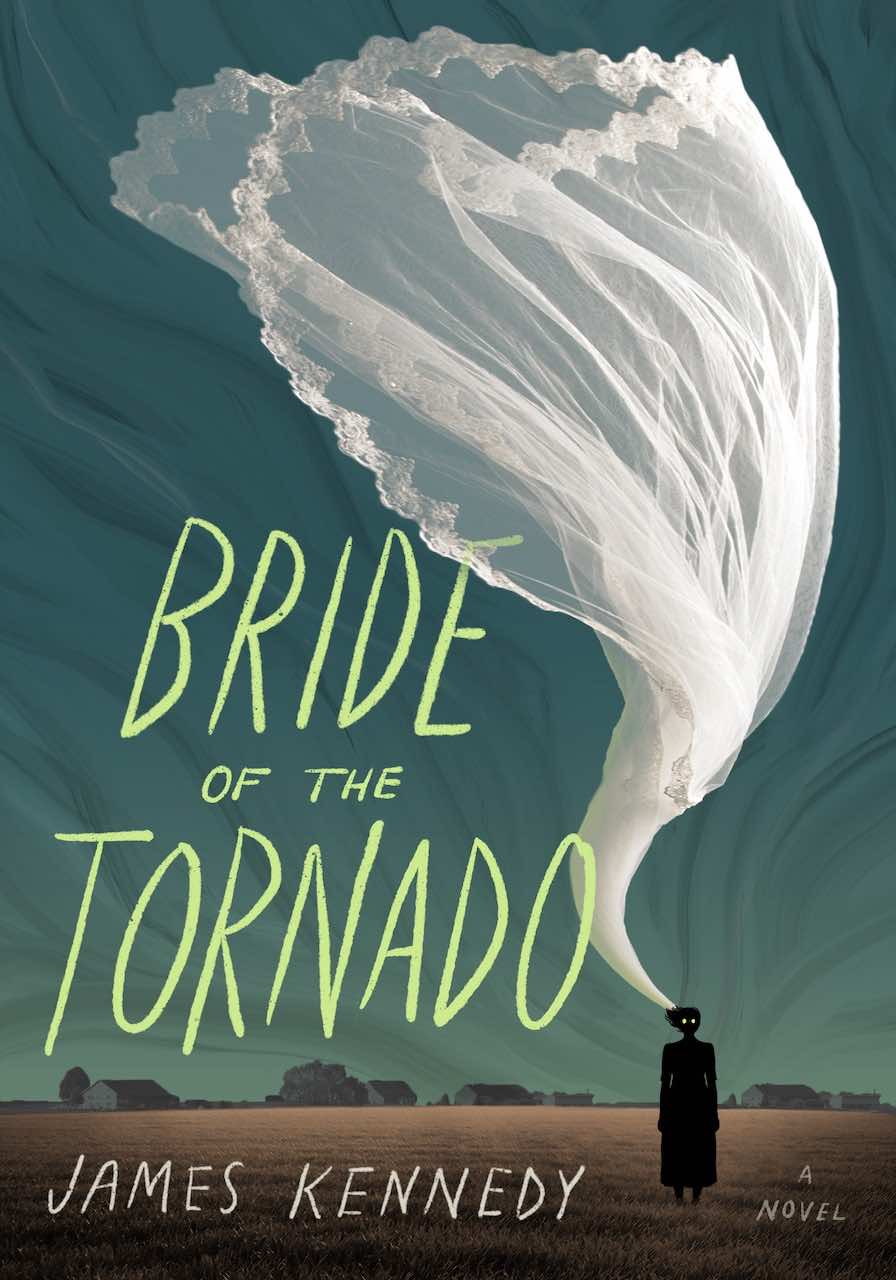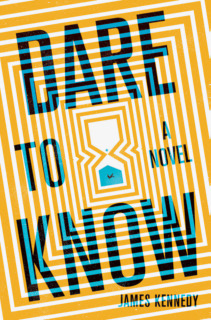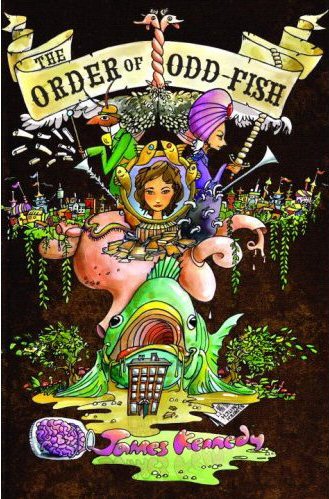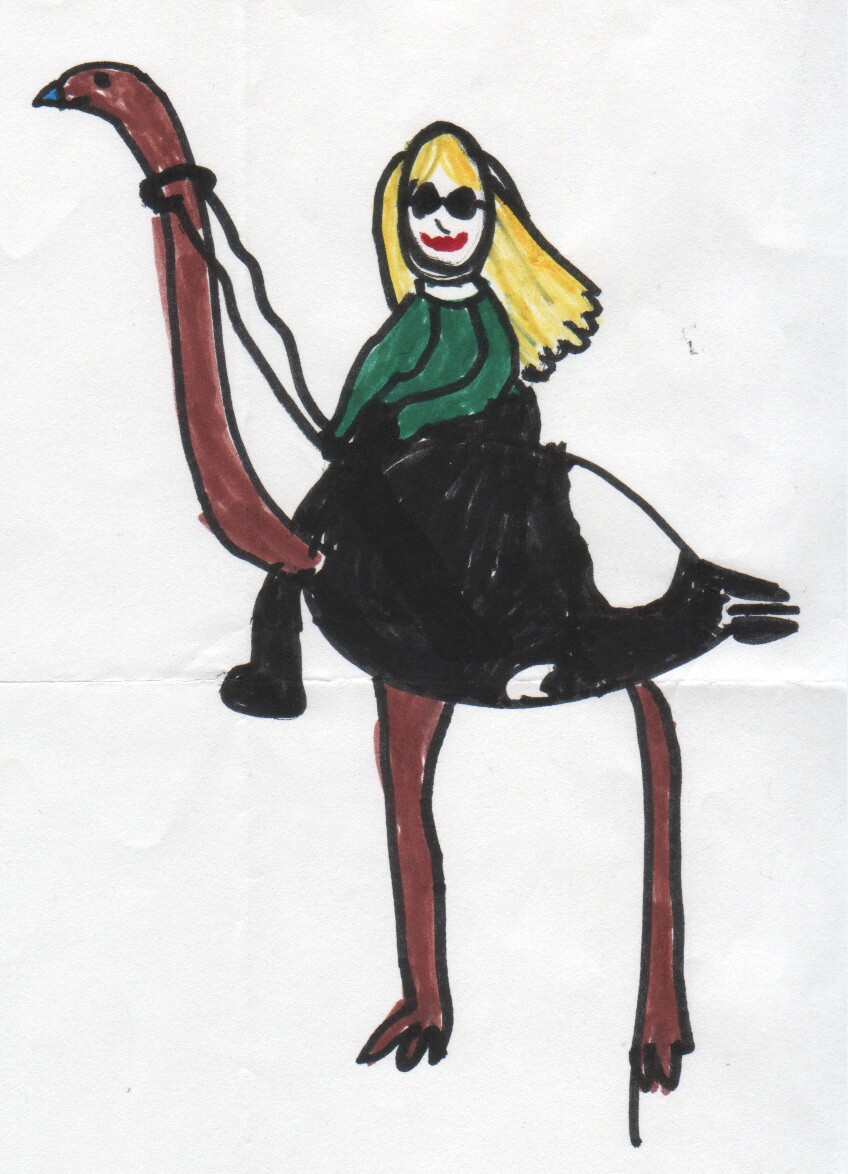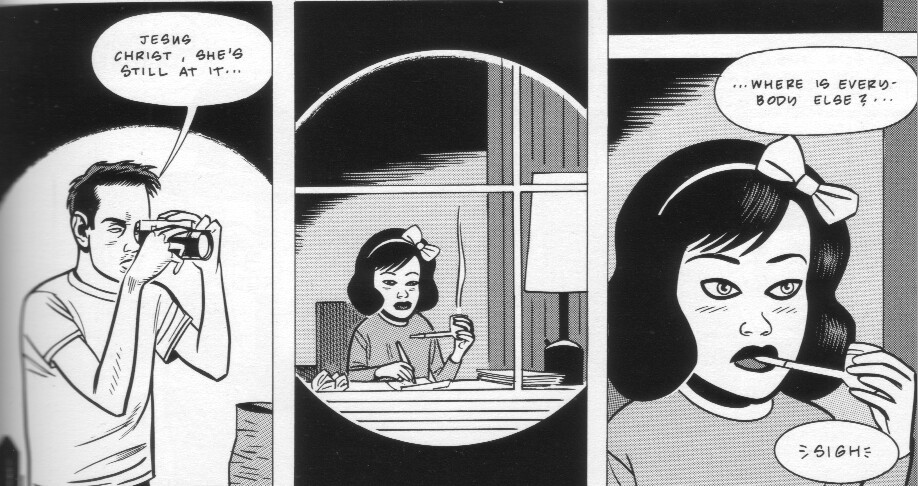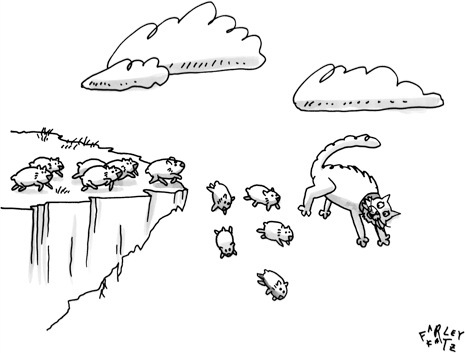Mr. Miatsu’s Deadly Game

|
Last week, the formidable Betsy Bird of the School Library Journal posted a monster interview with me. Check it out if you want to read about my opinions on Zork, my life in the convent, and why The Jeffersons is superior to Catcher in the Rye. Many in the comments section deem this the “Best. Interview. Ever.” Dare you disagree?
I was also interviewed by the lovely Senfaye on A Maze Of Books. Read it if you’re curious as to why I chose to end the interview by saying “I hate you”—and why when Senfaye asked “What’s your favorite food?” I replied “Your skull.” It’s scandalous!
Now, today I am going to post something possibly embarrassing. I am going to introduce you to my 1995 self, and make public an obscure artifact of that era: Krautmiser’s Mr. Miatsu’s Deadly Game.
I went to Notre Dame for college. There was a lively music scene. Probably the best-known musician to come out of it is Ted Leo of Chisel and the Pharmacists.
I wanted to be part of it. Even though I’m in a band now, I’m actually not very musical. I certainly wasn’t musical when I was 18. Even still, I became a DJ at WVFI, the campus radio station. I learned how to play the bass. I joined some bands. One of them was a sludgy grunge band. Another was a twee dream-pop band.
The last band was Krautmiser.
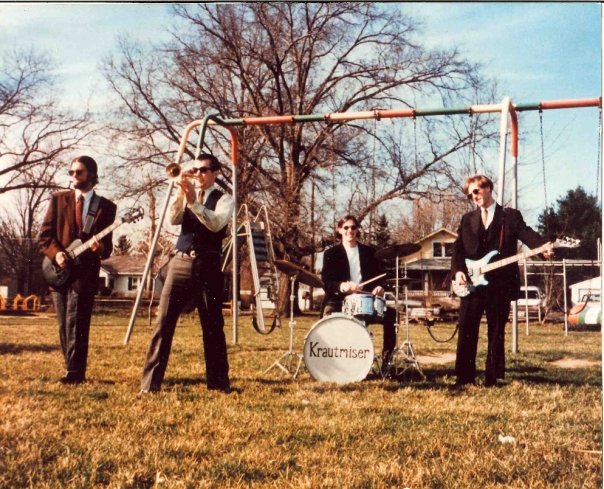
|
I wanted Krautmiser to be like Nation of Ulysses meets the Coctails by way of Bill Murray’s SNL lounge singer character. I wanted us to be like the kind of band that you’d find playing Wednesday nights in a Holiday Inn hotel bar in 1976.
I was tired of punk’s rote scowl and indie rock’s emasculated diffidence. I wanted a band with vaudevillian showmanship, snappy costumes, a ludicrous back story, comic stage antics. We might not have entirely succeeded, but we had fun. We went on tour that summer. I still listen to the music with pleasure, although I’m not so vain as to believe that anyone outside our circle of friends would like it now. We had a band, we had a four-track, it was the nineties, and indie rock glorified amateurism—how could we resist recording an album?
Recently a blog has popped up called South Bend Power 90s. It aims to chronicle that music scene I was part of. This week they’re featuring Krautmiser’s one and only album, Mr. Miatsu’s Deadly Game. Here’s what the cover looked like:

|
The Chinese man playing “Miatsu” in that picture? He was the proprietor of The Great Wall, a Chinese restaurant in South Bend. Those of you who have read The Order of Odd-Fish might be tickled to learn his name was Ken Kiang. Yep, that’s where the name came from!
I wrote a story that was included with each tape. I’ve reprinted it below, along with pictures and posters from the time. The story is a cliffhanger, so a couple weeks ago I went ahead and wrote a “conclusion” to that story for South Bend Power 90s.
So let me take you back to 1995 . . . to Krautmiser’s Mr. Miatsu’s Deadly Game:
KRAUTMISER’S LAST HURRAH?
HAS KRAUTMISER MET THEIR MATCH?
WHITHER PRUDENCE, BELOVED BOYS OF KRAUTMISER?
So shouted the headlines of the Fleet Street weeklies when England’s scandal-sheet favourites, Krautmiser, announced their intention to play Mr. Miatsu’s deadly game.
“This time they’ve gone too far,” sniffed Lady Agatha Croydon, the ex-betrothed of Krautmiser’s notorious playboy drummer Jack Howard, when informed of the band’s sensational announcement.
But what is the story behind the scandal? Some wags claim Krautmiser was unwittingly shanghaied into playing Mr. Miatsu’s deadly game. But when has Krautmiser ever done anything “unwittingly”—Krautmiser, a band whose every smallest action, down to the flirtatious bat of an eyelash, is precalculated and phase-plotted by a Cray-2 supercomputer for maximum swank and joie de vivre?

|
Others bandy about allegations that Krautmiser was forced into participating in Mr. Miatsu’s deadly game. But how could Krautmiser ever be “forced” to do anything—Krautmiser, the wealthiest and most powerful band in the world?
No, Krautmiser’s decision to engage Mr. Miatsu in his deadly game can only be traced to one reason—the same reason for all their actions—that is, the boundless insouciance and devil-may-care sassiness that have made them beloved pop-culture icons the world over. “We thought it’d be a lark to play Miatsu’s deadly game,” said Julian Dingle, guitarist, at a recent press conference.

|
But who is Mr. Miatsu? That question is not easily answered. All that can be said for certain about the enigmatic Miatsu is that once every year, this inscrutable 850-year-old mandarin emerges from his inaccessible pagoda deep within the heart of China and issues his challenge: “Who shall play my exceedingly dangerous game?”
What kind of band would throw their lives to the fickle winds of Oriental fate? “We started out with nothing,” growled bassist James Kennedy in his raspy Irish brogue, “so we find it much easier to gamble everything.” To be sure, Krautmiser did have inauspicious beginnings: in the early years, Kennedy was nothing more than another streetfighting lad going nowhere fast in the pubs of Belfast.
How he fell in with Jack Howard, an Eton schoolboy still in shortpants at the time, and Julian Dingle, a well-heeled Oxford don and the unofficial “bad boy” of orthodox Scholasticism, is still a mystery.

|

|

|

|
It was not until 1964 the Krautmiser finally found a vocalist. It was August 4, “Rodeo Nite” at the Buckin’ Silver Star Saloon in Junction City, Kansas. “We don’t have a singer for this next song,” Julian called out halfway through the set. “Does anyone here know how to sing?”
“Oh, ah do!” piped up a drunken farm girl from the cornfields of Kansas. It was her first night on the town, and this blue-dressed, blonde-tressed ingenue was none the better for the five gin and tonics that she had downed that night.
“What’s your name, young lovely?” inquired a solicitous James Kennedy as he helped her stagger onto the stage.
“Dave McMahon,” slurred the young girl. “But I let the nice boys call me Peaches,” she added, giggling.
“How old are you, little miss?” asked Jack Howard skeptically.
“Eighteen,” said Peaches McMahon defiantly. But she was only sixteen, and even now Ma McMahon was peeping out the window of her farmhouse hundreds of miles away, wondering when her little Peaches would return.
She never did. Even when falling-down drunk, Peaches McMahon managed to bring the house down for encore after encore. That very night she climbed into the Krautmiser tour bus, and never saw Kansas again.
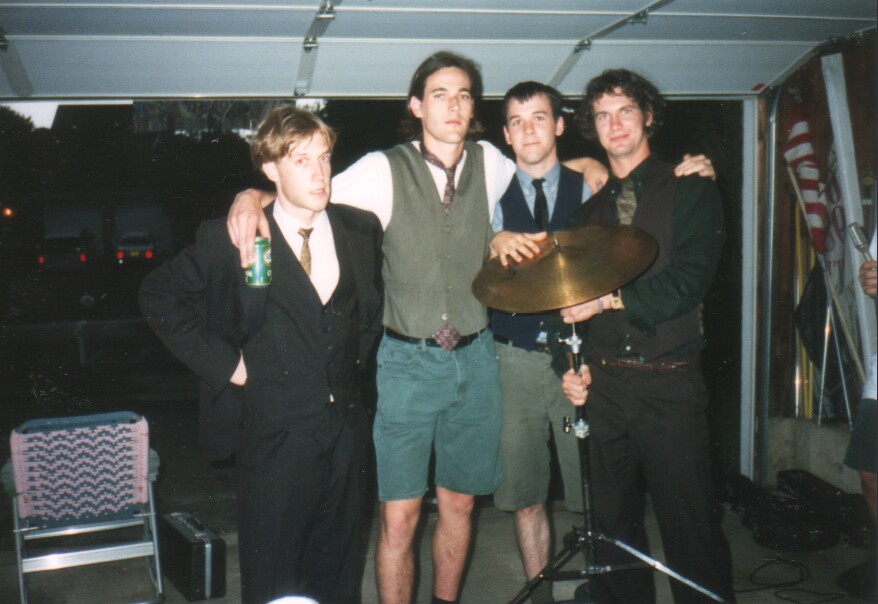
|
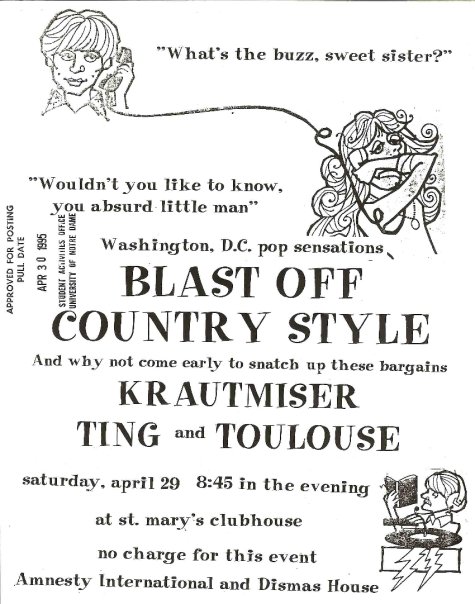
|
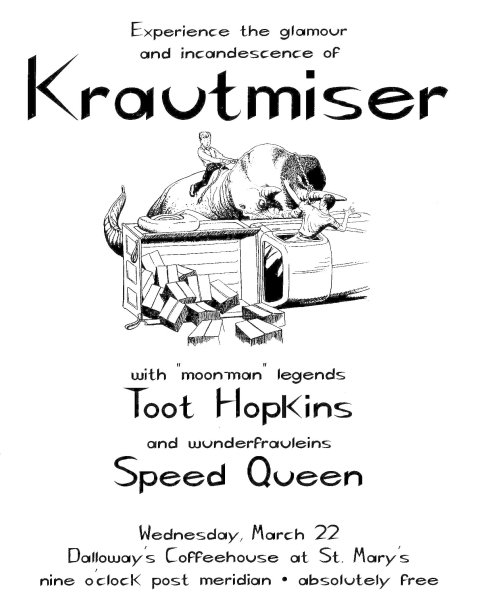
|
But the lean years were not over for Krautmiser. Who knows what might have become of Krautmiser had Sir Evelyn Hottentot, the eccentric and fabulously wealthy aristocrat, not walked into London’s “seedier-than-thou” Black Bombay Club the night of September 14, 1967? Sir Evelyn was immediately smitten by Krautmiser’s youthful savoir faire—and yet his heart was broken by the abject poverty Krautmiser endured, their bony ribs sticking out of their lanky, emaciated frames. Sir Evelyn immediately took Krautmiser under his wing, offering the boys a place to stay and hot meals.

|
But Sir Evelyn turned out to be as dotty as he was generous. He was given to bouts of melancholia and he frequently went skeet shooting in the middle of Piccadilly Square. His weakness for the caresses of supple Malaysian houseboys left him with a nasty case of syphilis that nearly drove him mad. Krautmiser soon took over their daft benefactor’s fortunes and, with cunning financial prowess, went on to establish themselves as the best-loved band in the world.
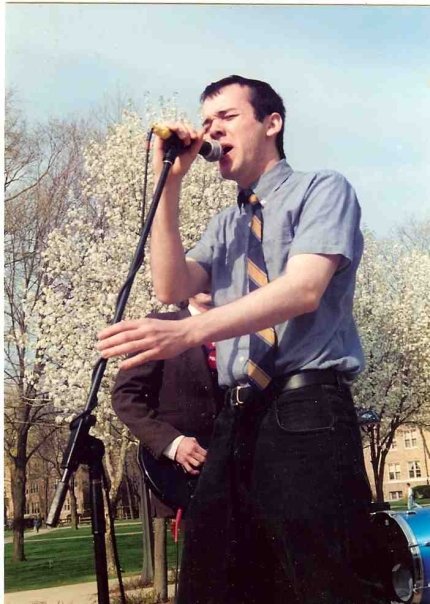
|

|

|

|
And so now Krautmiser stands at the entrance of Mr. Miatsu’s “death pagoda.” The door opens. Miatsu emerges.
“Who shall play my exceedingly dangerous game?” rasps the ancient monk.
“We shall,” proclaims James Kennedy as Krautmiser steps forward. “We shall play your dangerous game with relish, Miatsu.”
“But are your fists of quality much greatness?” questions Miatsu sagely.
Replies McMahon, “Our fists are motorized explosions.”
“Your explosions are your own impotence,” snaps Miatsu.
“Bold talk,” returns Howard, “for a man whose very kimono is a flapping tent of viscera.”
“I am that kimono,” growls Miatsu, eyes blazing.
“That we shall defrock you of your own substance,” muses Dingle. “Mr. Miatsu—or, should I say, my little Peking duck.”
“I shall consume you as I consumed General Ch’ung Kiang before you!” booms Mr. Miatsu as storm clouds rumble. “Enter, young Krautmisers, into my ‘Death Pagoda.’ I have spoken.”
Krautmiser enters. The door closes.
Oh, do be careful, reckless youth of Britain! Oh, do come home safe, beloved boys of Krautmiser!
But what happened to Krautmiser in Mr. Miatsu’s “Death Pagoda”?
Now, finally, the truth is revealed . . .

|
FOURTEEN YEARS LATER . . .
THE CONCLUSION TO “MR. MIATSU’S DEADLY GAME”!
“A springtime shower of illustrious blessings to you, Mr. Miatsu,” said Jack Howard politely; “and to the she-goat who bore you from its rancid womb.”
“Your feeble contumely holds no terror,” said Miatsu from his alabaster throne, “for a man who suckled at the teat of Dag Na Goga, the silver dragon who even now slumbers beneath the soil.”
“A cunning jade statuette, Miatsu,” said Dave McMahon, plucking up a centuries-old idol. “It will look quaint on me mum’s window-sill.”
“Even now I curse that window-sill; wild boars shall befoul it.”
James Kennedy shot back, “Be it so, but I shall violate every orifice you possess with those selfsame boars.”
Miatsu whirled. “This from a man whose dishonorable underclothes have been the scorn of his generation!”
The curtains parted, and Julian Dingle alighted, borne by a rickshaw.
“So enters the prancing monkey of the Western world,” observed Miatsu. “And now, who will play my exceedingly dangerous game?”
“The game has already been played . . . and won,” said Julian coolly. “For, unbeknownst to you or your sad regiment of ill-fed monks, I have paid a visit to Beijing . . . and the Imperial Library.”
“Thrice a bungler, thrice an oaf,” gloated Miatsu. “What piffling words did you scrabble up, backwards scholar?”
“Only this: that you once loved a woman, Miatsu,” said Julian boldly. “And, yea, unbeknownst even to her own sister, your betrothed, you dallied with her, and tasted delights in the shade of the cherry blossoms; iniquity in your heart, and shame on your lips, you fled to this miserable temple; and here you have moldered for 850 years, a man who is not a man, but a shell, who possesses not a heart, but a lump of dung; for you cannot love, Miatsu, and that is your deadly game.”
But even as Julian spoke, Miatsu grew smaller and smaller; the gold and red robes that once enfolded him now hung loosely about his diminishing frame; the alabaster idols, the proud banners, the shining kanji on the crimson cards, the granite obelisk, the dice of bronze and ivory, the pods and chits and spangles and coins—indeed, all of the apparatus of the deadly game, crumbled to dust; and then, all at once, the boys of Krautmiser found themselves, not in the arid wastes of Red China, but in a leafy glade, alongside a babbling brook, under a spreading chestnut-tree; the delicate “twoot-twoot” of the thrush could be heard—
“England,” cried David, clasping his tiny, pale, puffy hands together in infantile delight—capering spastically into the sunrise—”Oh, oh, oh my beloved England!”

|
Ah, self-indulgence, thy name is Internet.








